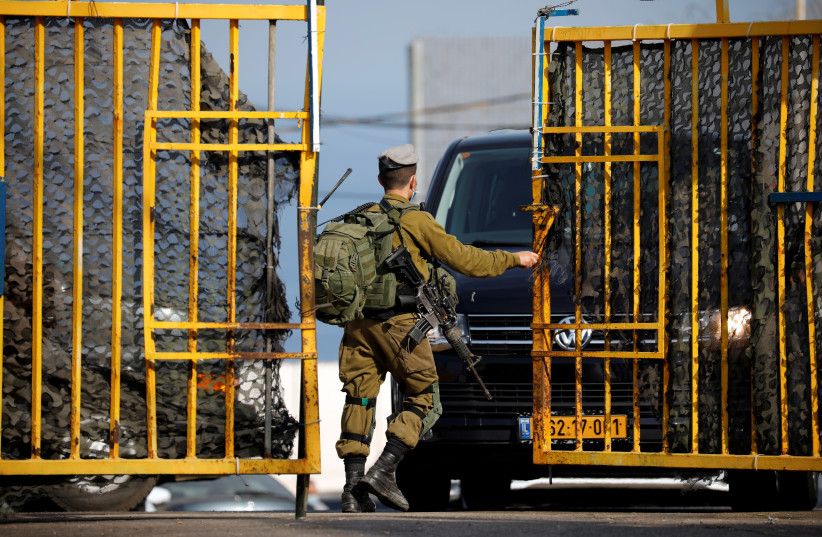“As an Israeli, as a Jew and as a human being, my heart aches seeing the images of people going hungry on the streets of Lebanon.”

(photo credit: AMIR COHEN/REUTERS)
Defense Minister Benny Gantz offered to assist Lebanon on Sunday as Israel’s neighbor continues to suffer from a worsening economic crisis.
“As an Israeli, as a Jew and as a human being, my heart aches seeing the images of people going hungry on the streets of Lebanon,” wrote Gantz on Twitter. “Israel has offered assistance to Lebanon in the past and even today we are ready to act, and to encourage other countries to extend a helping hand to Lebanon so that it will once again flourish and emerge from its state of crisis.”
Israel has offered assistance to Lebanon in the past and even today we are ready to act, and to encourage other countries to extend a helping hand to Lebanon so that it will once again flourish and emerge from its state of crisis.
— בני גנץ – Benny Gantz (@gantzbe) July 4, 2021
Lebanon is suffering from a worsening economic crisis, with violence and protests breaking out in cities around the country as basic services collapse. Electricity outages and gas shortages are now commonplace in the country.
Over half of Lebanon’s population now lives in poverty. According to the World Bank, Lebanon’s financial crisis is likely to rank in the top 10, possibly even the top three, most severe crises in the world since the mid-1800’s. A World Bank report in early June warned that “the increasingly dire socio-economic conditions risk systemic national failings with regional and potentially global effects.”
Hezbollah leader Hassan Nasrallah has stated in recent weeks that the gasoline crisis in Lebanon could be addressed within a few days if the country would just accept Iranian oil shipments, which are under sanctions by international law.
The Hezbollah leader stated that Hezbollah will eventually negotiate directly with the Iranian government on its own and import Iranian oil through the Port of Beirut, if the Lebanese government does not begin “bearing its responsibility.” Such a move could bring Iranian fuel tankers not far from Israel’s shores.
This isn’t the first time Israel has offered to help Lebanon in times of crisis.
After a huge explosion devastated Beirut in August of last year, killing dozens and injuring thousands, then prime minister Benjamin Netanyahu approved humanitarian and medical assistance to Lebanon and instructed the National Security Council to contact then UN envoy Nickolay Mladenov to find out how Israel could help.
Gantz and other Israeli officials reiterated Israel’s offer for aid at the time as well.
Both Lebanese President Michel Aoun and Aoun’s daughter, Claudine Aoun Roukoz, have expressed openness in the past to some form of peace with Israel.
In an interview with Al-Jadeed TV in October of last year, Roukoz stated that if border disputes with Israel and issues with Palestinian refugees were resolved, she would “not mind that the Lebanese state makes peace with Israel, after the demarcation and the guarantee of resources.”
In August of last year, in response to a question concerning whether Lebanon would consider making peace with Israel, Aoun stated, “That depends. We have problems with Israel, and we have to resolve them first.” Aoun did not specify what problems would need to be resolved.
In the past year, Lebanon and Israel have been conducted US-mediated negotiations concerning the maritime border between the countries’ Exclusive Economic Zones.
As reported by The Jerusalem Post
